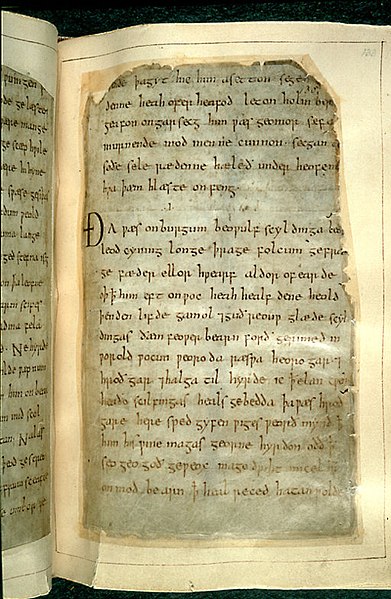Culture of the United Kingdom
The culture of the United Kingdom is influenced by its combined nations' history; its historically Christian religious life, its interaction with the cultures of Europe, the individual cultures of England, Wales and Scotland and the impact of the British Empire. The culture of the United Kingdom may also colloquially be referred to as British culture; Northern Ireland, though not geographically part of Great Britain, may still be considered as having a place within British culture. Although British culture is a distinct entity, the individual cultures of England, Scotland, Wales and Northern Ireland are diverse. There have been varying degrees of overlap and distinctiveness between these four cultures.
The British Museum is one of the most visited museums in the world.
The Old English heroic poem Beowulf is located in the British Library.
Robert Burns is regarded as the national poet of Scotland.
Welsh native Roald Dahl is frequently ranked the best children's author in British polls.
History of the United Kingdom
The history of the United Kingdom began in the early eighteenth century with the Treaty of Union and Acts of Union. The core of the United Kingdom as a unified state came into being in 1707 with the political union of the kingdoms of England and Scotland, into a new unitary state called Great Britain. Of this new state of Great Britain, the historian Simon Schama said:What began as a hostile merger would end in a full partnership in the most powerful going concern in the world... it was one of the most astonishing transformations in European history.
A published version of the Articles of Union agreement that led to the creation of the Kingdom of Great Britain in 1707
George I in 1714, by Godfrey Kneller
18th-century London by William Hogarth
John Churchill, Duke of Marlborough accepts the French surrender at Blenheim, 1704








